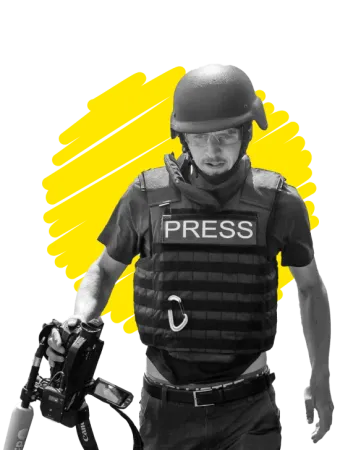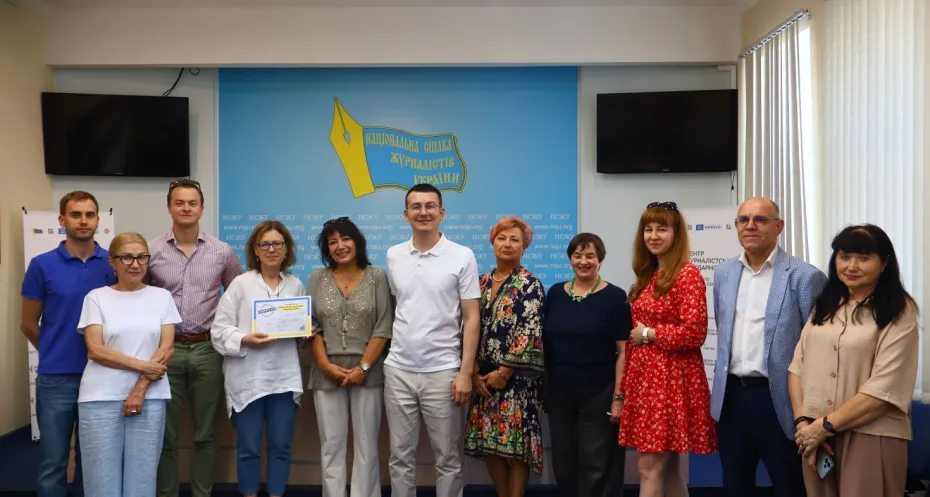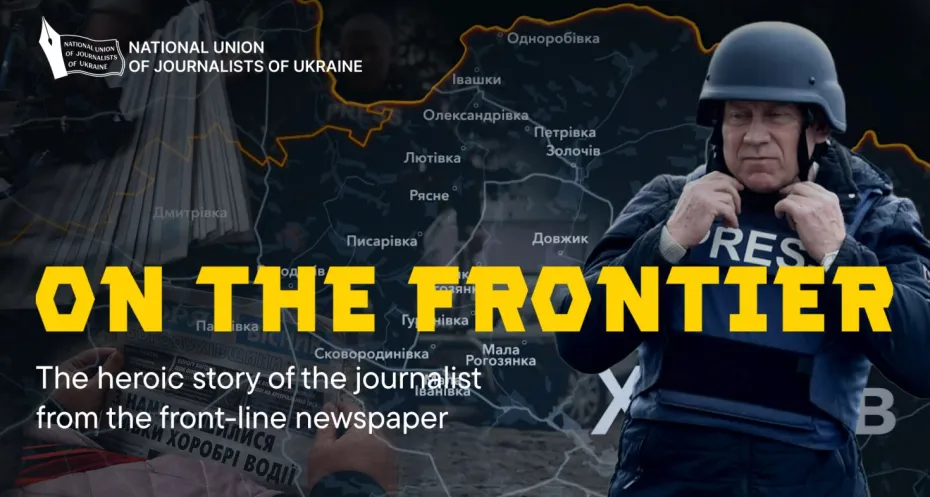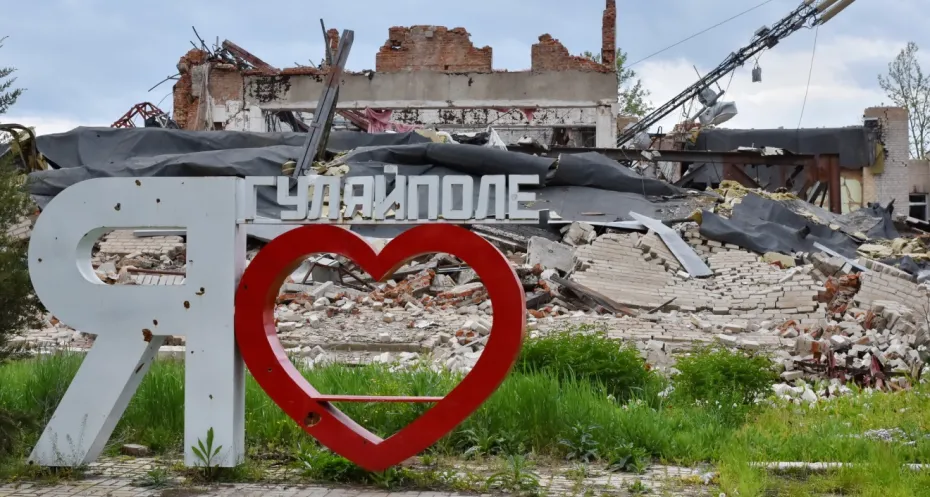2 years into Russia's invasion Ukrainian media need support more than ever
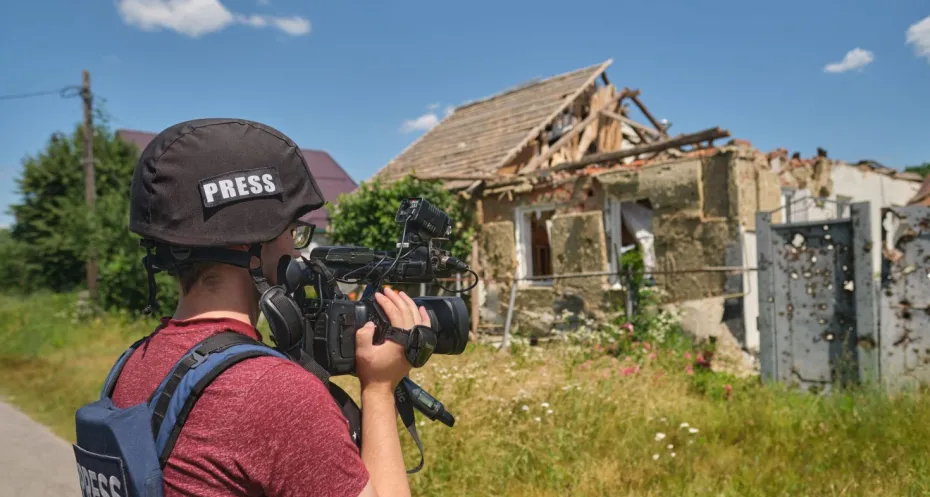
On 24 February 2022 Russia started its full scale invasion of Ukraine, and now two years later, the fighting still continues. Days after the invasion, Free Press Unlimited started Media Lifeline Ukraine (MLU): an initiative to make sure that independent, relevant and reliable information remains available within the region at all times. These efforts are coordinated with our sister organisation Free Press for Eastern Europe, operating from Prague.
The first phase: emergency support
In the first months of MLU, we collected funds for immediate emergency support for journalists who turned into war correspondents over night. This support included relocating and evacuating journalists to safe areas, or to other countries like Poland. Journalists who stayed to report from the front lines were supported by bringing 150 high-quality ballistic vests and more than 400 safety kits across the border. Since the start of the invasion in Ukraine we have been able to support nearly 1100 Ukrainian journalists and fixers. Unfortunately, as the war continued, we needed to start providing long term support.
The second phase: sustainable support
In the second half of 2022 we assessed the needs of Ukrainian media outlets, beyond the immediate emergency support. How could we enable them to keep working and sustain access to reliable information?
We learned that many Ukrainian newsrooms chose to continue reporting from within Ukraine. However, many media workers, especially men who were called to fight, had to leave the profession. This caused a drain in human resources, and business models were malfunctioning because their audience was suddenly scattered throughout the country and disoriented, or arriving as refugees in mainly Poland. Because of this, what they needed most was help on the production level, tasks like the editing of stories, and putting subtitles under videos. They also needed information from the region their audience migrated to.
Media hub
We decided to combine the work of those Ukrainian newsrooms operating from within the country, with Ukrainian refugee journalists. We provided five women refugee journalists with a stipend, and contracted two more as a producer.
All journalists were offered a safe place to work in our media hub in Warsaw with fully equipped studios and were supported with permits to help them settle into Poland. We supported with housing, laptops, and training in for example Photo and Video Adaption for Social Media. This was needed for them to be able to continue their work in a different way than they were used to, since most journalists came from TV news production. We soon realised that it was also very important to include psychosocial support to help these journalists process trauma.
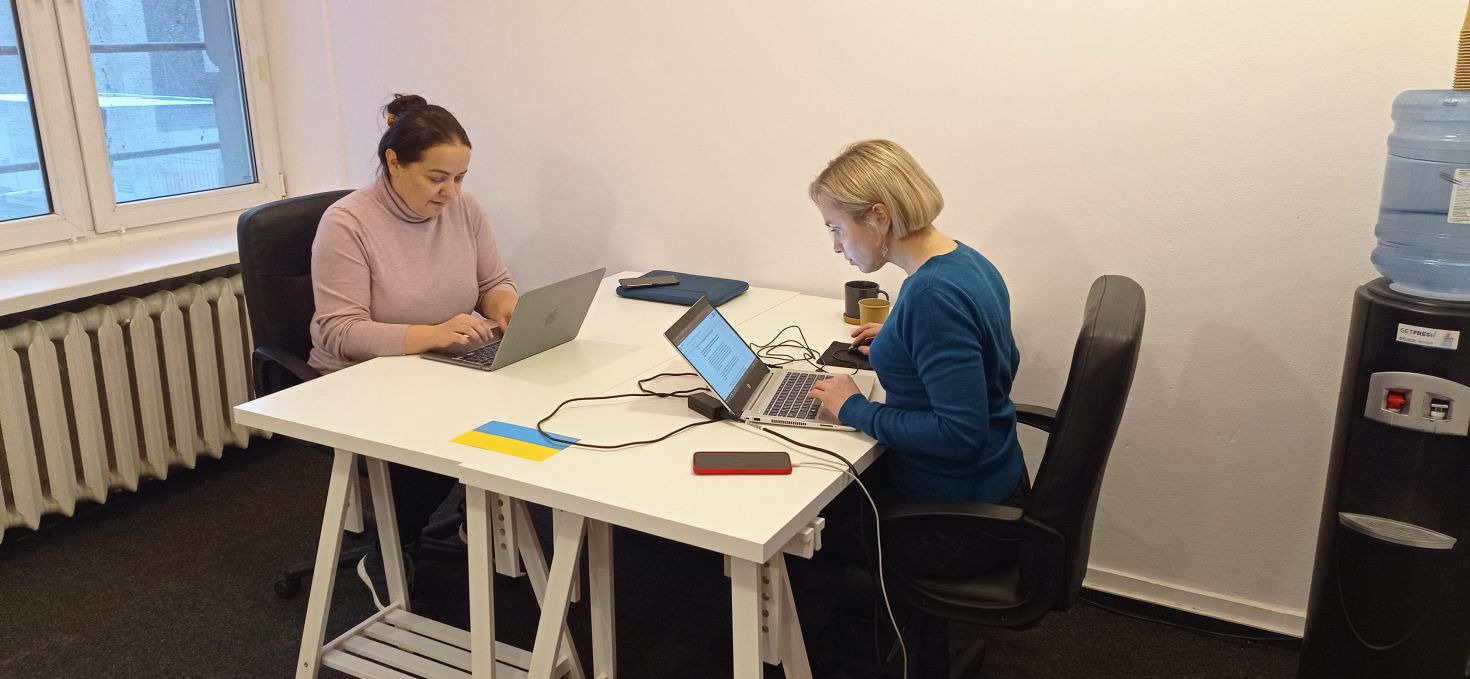
In the past year-and-a-half these journalists became a team that obtained the skills needed to best assist the newsrooms in Ukraine to create high quality content for the Ukrainian audience. They do not just support with production requests of Ukrainian newsrooms, but also deliver content and topics themselves. For example, a team went to the border between Ukraine and Poland to cover the farmer protests in Poland who were blocking the border, preventing supplies to enter Ukraine, and Ukrainian refugees to get out. Up until now, the hub produced 126 stories that were published as articles, video, and audio materials, working together with 10 independent media outlets in Ukraine.
Energy hub
In the fall of 2022, Russia initiated missile strikes targeting energy infrastructure causing regular power disruptions. This meant that many media outlets were unable to continue their work. We supported one of our partners with internet satellite kits, portable power stations, quick chargers and batteries.
This helped to:
- Sustain office operations during a blackout (for up to 50 people) for approximately 3 days, allowing the use of mounting equipment and a remote server;
- Support operations of 3 film crews for 1-2 working days;
- Facilitate full-scale studio shooting and broadcasting for one full day.
Our partner developed a system to turn their office into an open “energy hub” to keep the operations going of as many media outlets as possible in case of a blackout.
Continued support needed
Russia has not stopped bombing and destroying Ukrainian cities, which makes it impossible for our stipend receivers to return to their home country, even though that is their biggest wish. It was our biggest wish that Media Lifeline Ukraine had become obsolete in the past two years, but this is not the case. Far from it, as we see an ongoing need for support. To keep the flow of reliable information going, we want to continue and grow the issuing of stipends to refugee journalists as we have seen that this is a good way of supporting both journalists operating from exile, as those that still remain active within Ukraine.
''Ultimately, these journalists just want to keep doing their job: providing people with reliable, responsible journalism. That's what they do best and they need our support." - Ruth Kronenburg, Executive Director Free Press Unlimited
